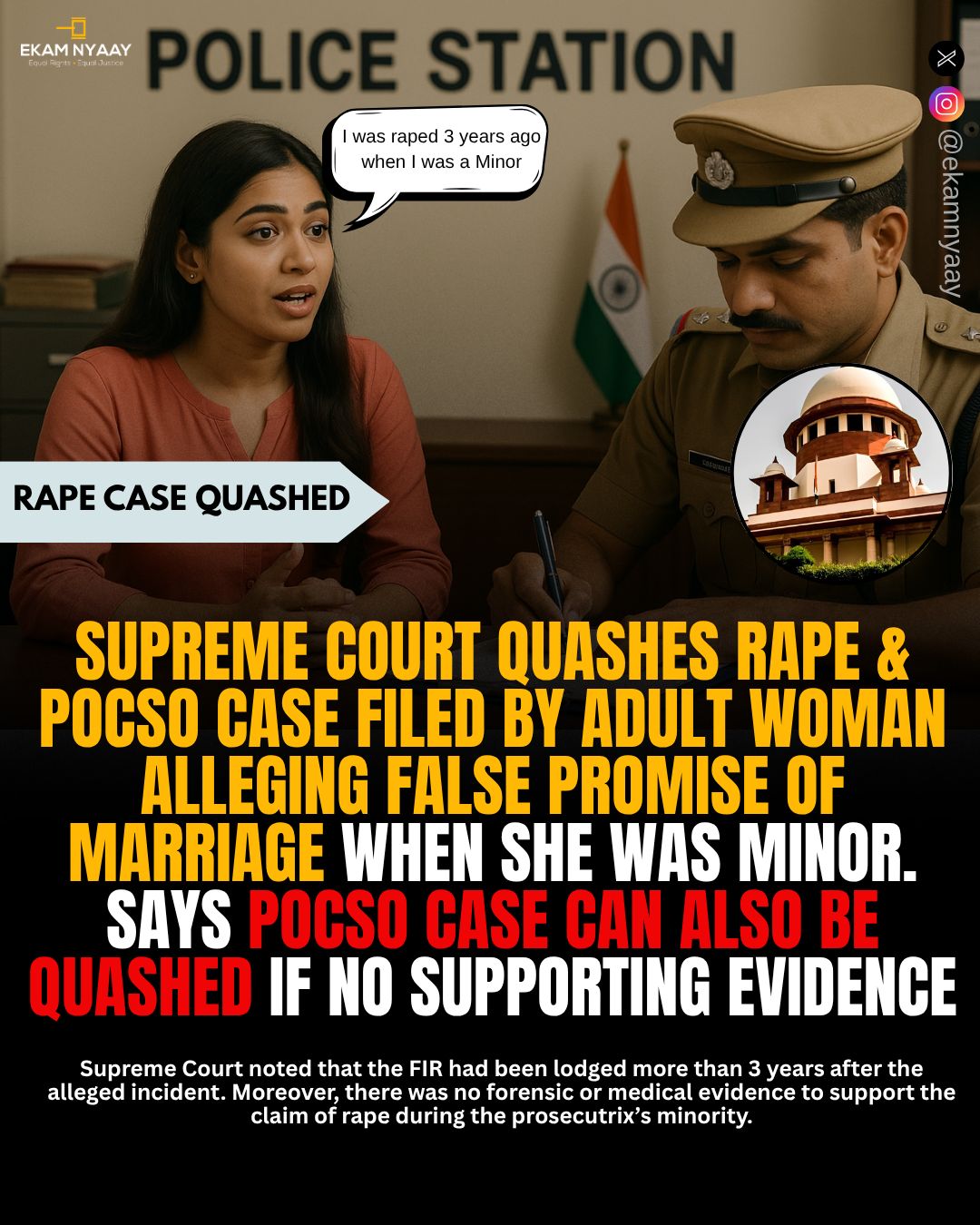
-
Supreme Court


SC: Upholds High Court Order Granting Father Custody of Minor Son in Cross-Border Dispute, Criticises Mother for Lying Before UK Court and Reaffirms that Child's Welfare Overrides Comity of Courts.
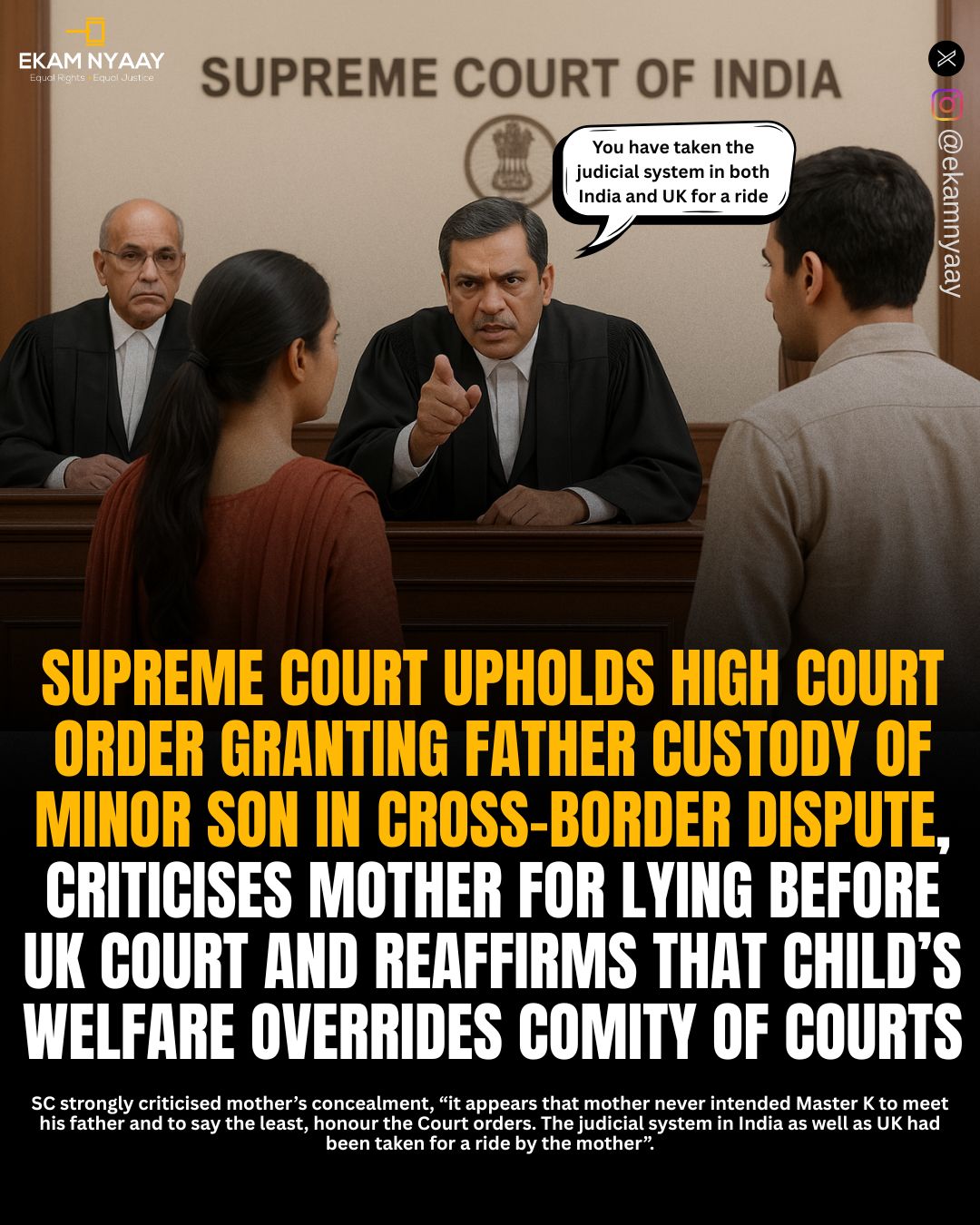
In Komal Krishan Arora & Ors. v. Sandeep Kumar & Ors., Supreme Court dealt with a complex child custody dispute spanning India and the United Kingdom. Sandeep Kumar (father) and Latika Arora (mother) married in 2010 and had two children, Miss N, currently living with the mother in the UK, and Master K, left behind in India with the maternal grandparents. The father filed a writ of habeas corpus before the Punjab & Haryana High Court on 10.09.2021 alleging that Master K was in the illegal custody of his in-laws.
The case began when the mother left for the UK on 08.05.2021 with both children but secretly left Master K in Sonipat. Before the UK High Court, she misrepresented that both children were with her. The father simultaneously filed for divorce in India and also approached the UK High Court seeking summary return of the children. On 31.07.2021, the mother filed a divorce petition in the UK.
On 16.09.2021, when the father visited his in-laws’ house in Sonipat, he found Master K playing there. When he attempted to meet him, he was assaulted and sustained rib fractures. This prompted an urgent habeas corpus hearing. The High Court, on 24.09.2021, directed police to secure Master K’s passport and ensure his production before the Court.
On 16.11.2021, the High Court allowed the father’s habeas corpus petition and ordered custody to him. It observed, “Pending a final determination of the issues of custody… the best interest of Master K would be served if his custody is handed over to the petitioner.”
The UK High Court severely criticized the mother’s concealment. It stated,
“It is clear from the above that the mother lured the court into error by failing to disclose that she had only removed Miss N to the UK and that Master K remained in India. This crude subterfuge, which was always going to be found out, does the mother no credit at all.”
On 12.11.2021, the UK High Court held Miss N had become habitually resident in the UK and stated,“It would be in the best interests of Miss N that she should be reunited with Master K and that they should be brought up together under the primary care of their mother in London.”. However, it left Master K’s relocation subject to the decision of Indian courts.
Aggrieved by the High Court’s order, the mother, her father, and her brother filed a Special Leave Petition before the Supreme Court challenging the decision.
SC strongly criticised mother’s concealment.“it appears that mother never intended Master K to meet his father and to say the least, honour the Court orders. The judicial system in India as well as UK had been taken for a ride by the mother”. The Court emphasized that custody disputes must be resolved by focusing solely on the child’s welfare, not parental rights or foreign decrees.
Court reaffirmed that doctrines such as comity of courts and foreign decrees cannot override the welfare principle. It cited earlier rulings, including Rajeswari Chandrasekar Ganesh and Neethu B., to underline that custody decisions must focus on the child’s emotional, psychological, and educational needs.
Upholding the High Court’s order, the Supreme Court held: “The welfare and best interest of the child would be served if he would continue with the father… the findings as recorded by the High Court does not warrant any interference in this appeal.” It dismissed the mother’s appeal and directed that Master K’s custody be handed over to the father within 15 days.
SC also laid down safeguards:
(i) the father cannot take Master K outside India without leave of the jurisdictional High Court;
(ii) the mother and maternal grandparents shall have weekly visitation and video rights;
(iii) custody proceedings must be initiated under the Guardians and Wards Act within one month; and
(iv) the Juvenile Justice Board and Child Welfare Committee must monitor Master K’s well-being.
More In this segment
-
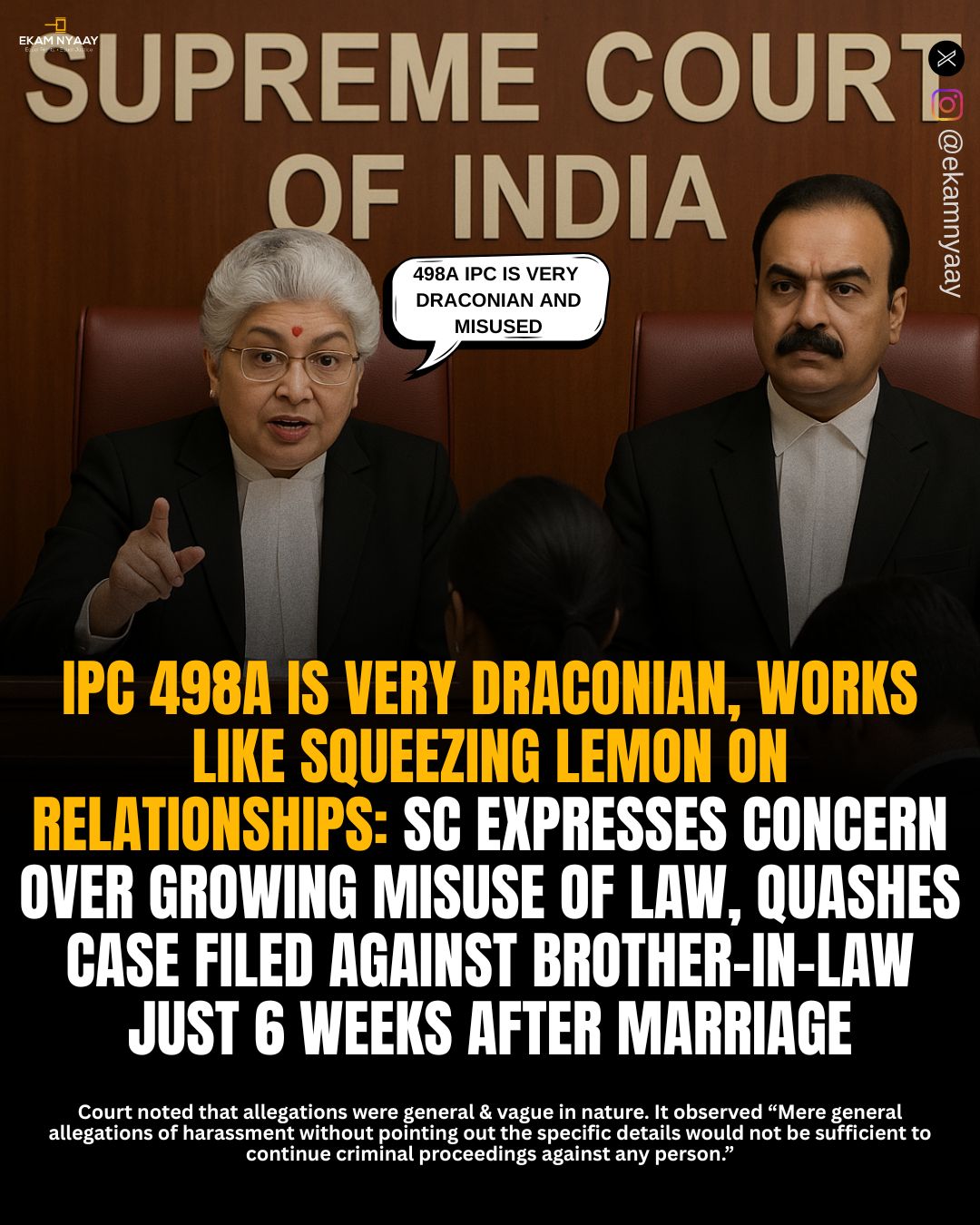
-
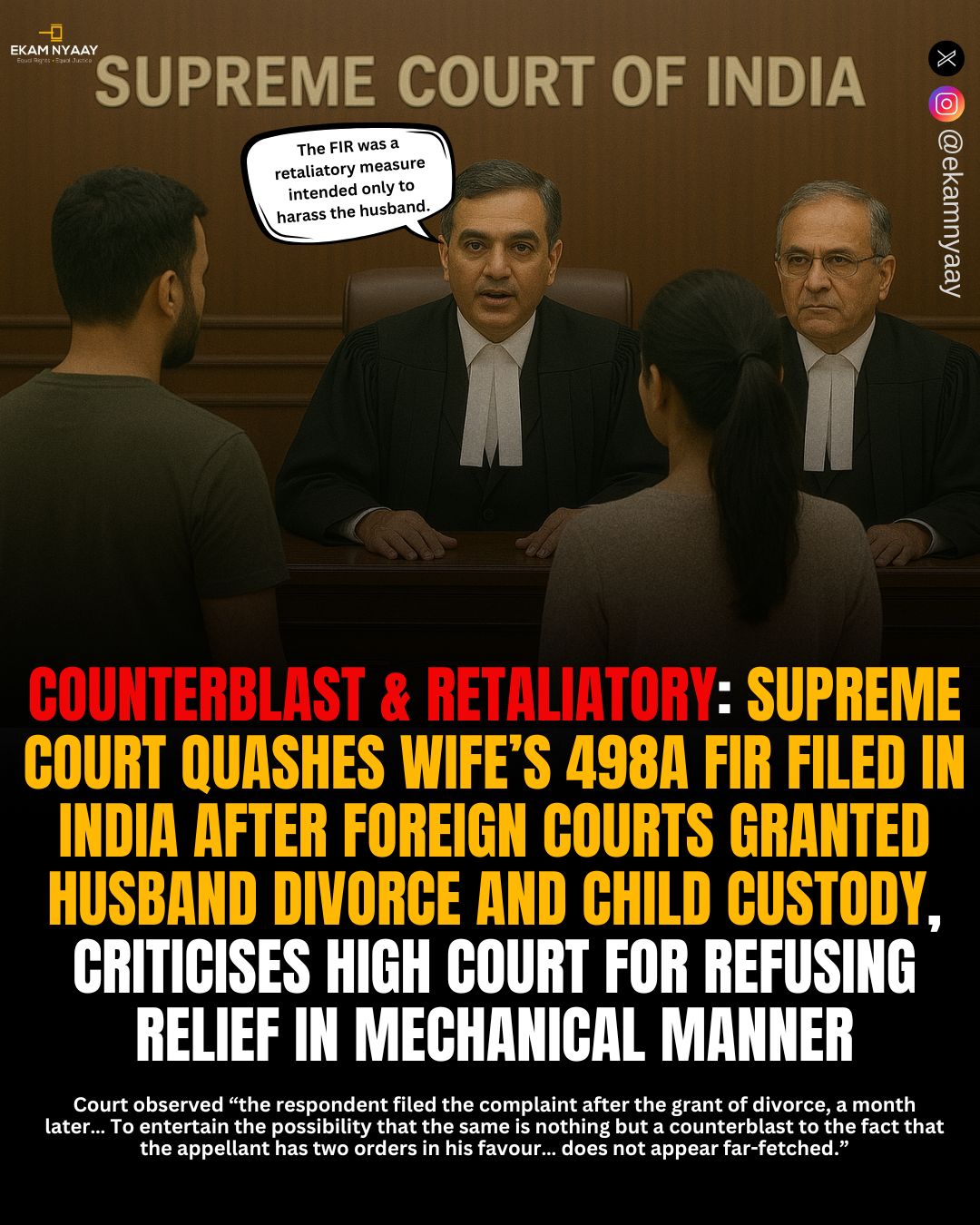
-
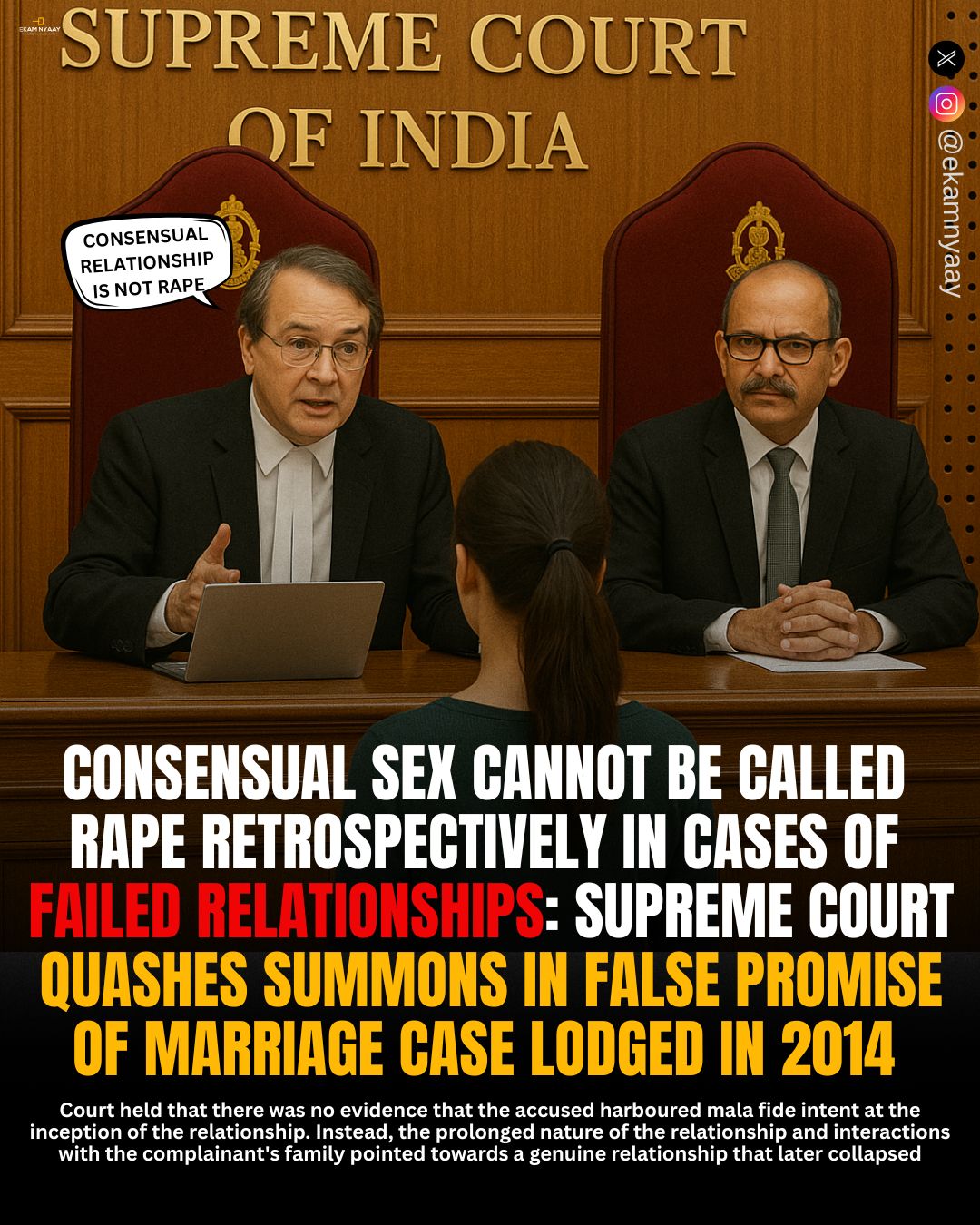
-
Supreme Court
- September 2025
SC – Consensual Sex Cannot be called Rape Retrospectively in cases of Failed Relatiosnships
-
-
